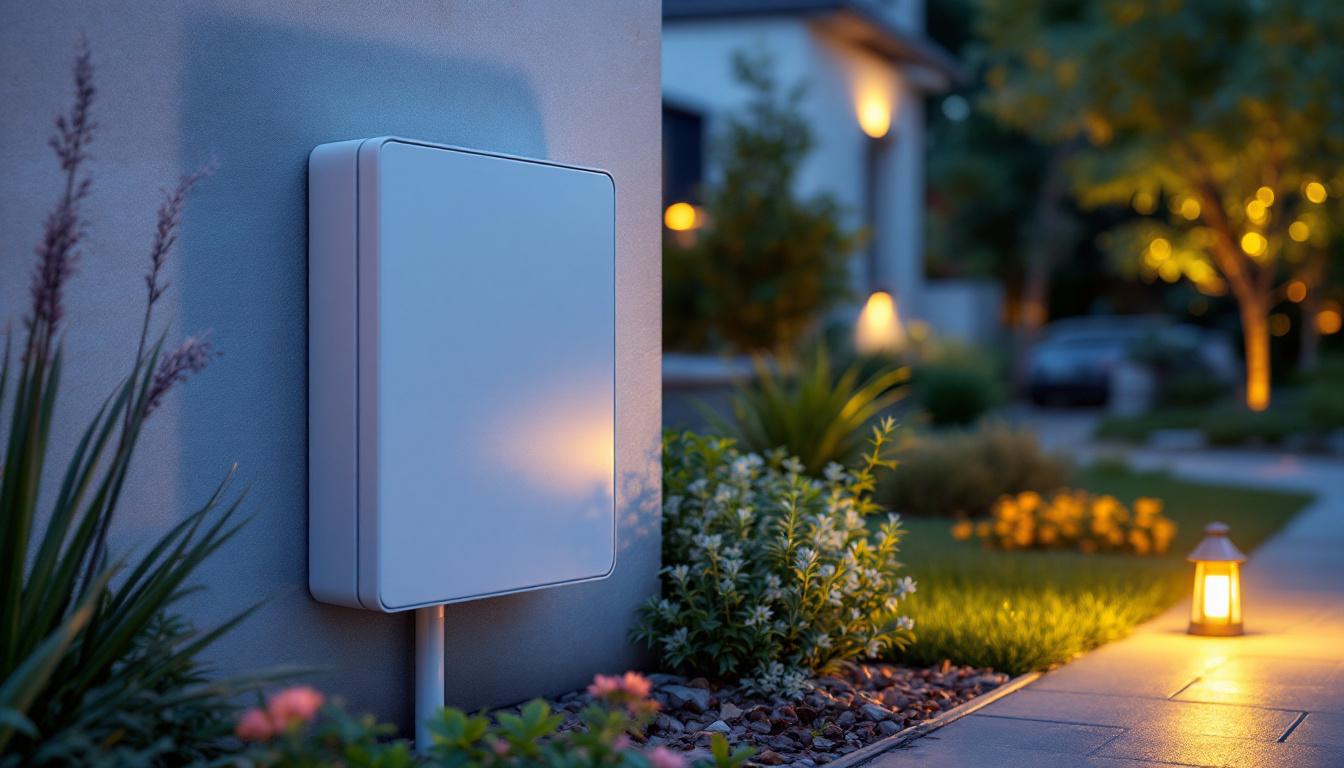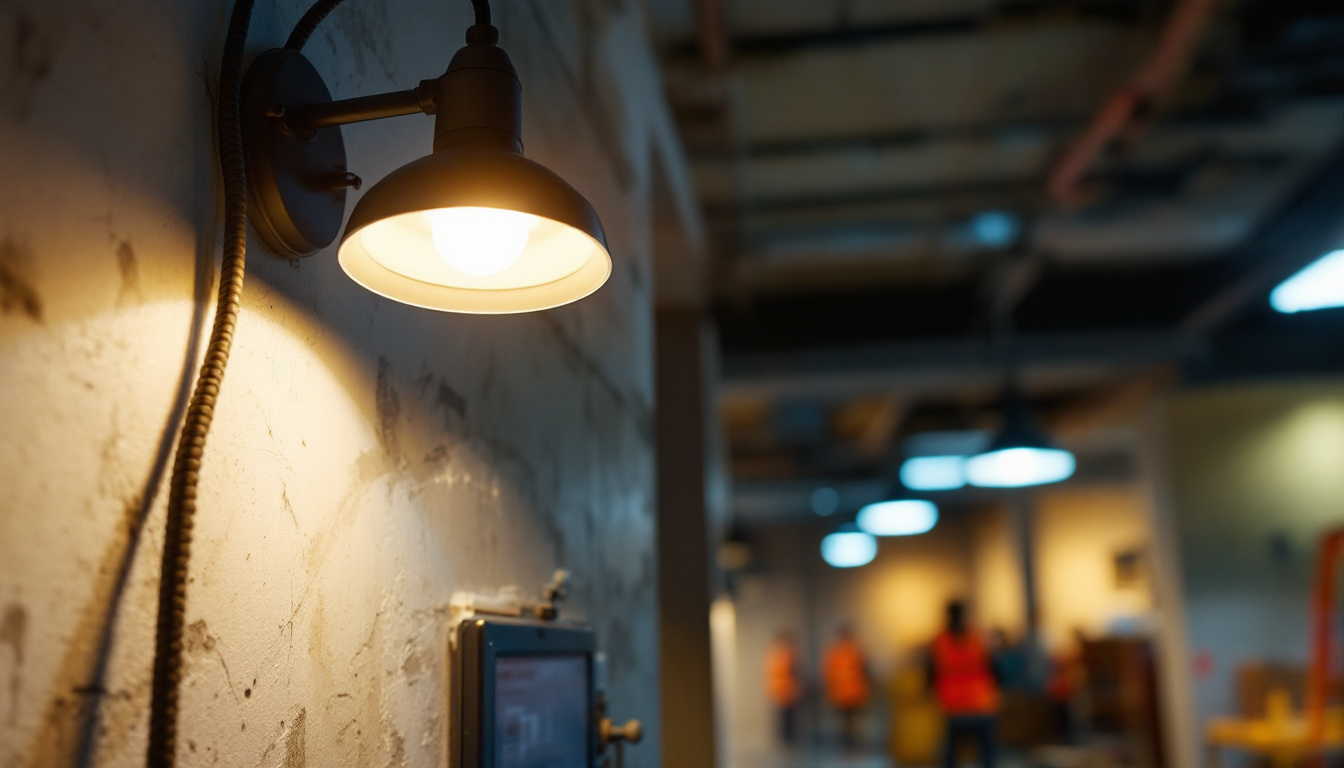
In the realm of outdoor lighting installations, attention to detail is paramount. Among the many components that contribute to a successful lighting project, the outdoor electrical box extender often goes unnoticed. This seemingly minor accessory can play a crucial role in ensuring that lighting fixtures are installed securely and function effectively. For lighting contractors, understanding the importance of electrical box extenders can make a significant difference in the outcome of their projects.
Outdoor electrical box extenders are designed to provide additional space for wiring connections and to accommodate fixtures that may not fit neatly within standard electrical boxes. These extenders are particularly useful in situations where the existing box is set too far back from the wall or surface, making it challenging to install the fixture properly.
Typically made from durable materials such as PVC or metal, outdoor electrical box extenders are built to withstand the elements. They are available in various sizes and configurations, allowing contractors to choose the right extender for each unique installation. Understanding the specifications and applications of these extenders is essential for ensuring a seamless integration into any lighting project.
One of the primary benefits of using outdoor electrical box extenders is the enhanced safety they provide. By allowing for proper clearance between the fixture and the wall, extenders help prevent overheating and potential fire hazards. Additionally, they create a more aesthetically pleasing installation by ensuring that fixtures sit flush against the surface, which is particularly important for high-visibility areas.
Moreover, electrical box extenders simplify the wiring process. With extra space available, contractors can easily connect multiple wires without the risk of overcrowding. This not only speeds up the installation process but also reduces the likelihood of errors that could lead to malfunctioning fixtures.
Outdoor electrical box extenders are versatile tools that can be used in a variety of lighting projects. They are commonly employed in installations involving wall-mounted fixtures, such as sconces and floodlights, where the existing box may not be positioned correctly. Additionally, they are beneficial in scenarios where surface-mounted fixtures are installed on uneven or textured surfaces.
These extenders are also useful for accommodating larger fixtures that require more space for wiring connections. In cases where a contractor is upgrading to a more substantial light fixture, an extender can bridge the gap between the existing box and the new installation, ensuring a secure and safe fit.
When it comes to installing outdoor electrical box extenders, there are several factors that contractors must consider to ensure a successful outcome. Proper installation not only affects the functionality of the lighting but also impacts the overall safety of the project.
Selecting the appropriate electrical box extender is the first step in the installation process. Contractors should assess the size and type of the existing electrical box, as well as the dimensions of the fixture being installed. Extenders come in various depths and widths, so it is crucial to choose one that will accommodate the fixture while providing adequate space for wiring.
Additionally, contractors should consider the material of the extender. For outdoor applications, it is advisable to opt for extenders made from weather-resistant materials that can withstand moisture and temperature fluctuations. This ensures longevity and reliability in outdoor environments.
Once the right extender has been selected, proper installation techniques must be employed. Begin by turning off the power to the existing electrical box to ensure safety during the installation process. Remove the existing fixture and disconnect the wiring, taking care to note how the wires are connected for reassembly.
Next, attach the electrical box extender to the existing box, ensuring that it is secured tightly. Use appropriate screws and anchors to fasten the extender to the wall or surface, making sure it is level and flush. Once the extender is in place, reconnect the wiring according to the notes taken earlier, and then attach the new fixture securely to the extender.
After installation, it is essential to test the new lighting fixture to ensure it operates correctly. Turn the power back on and check for any flickering or issues with the light. If problems arise, double-check the wiring connections and make any necessary adjustments.
Finally, take a moment to inspect the overall appearance of the installation. Ensure that the fixture is aligned properly and that there are no visible gaps between the extender and the wall. A well-executed installation not only enhances the functionality of the lighting but also contributes to the overall aesthetic appeal of the outdoor space.
While outdoor electrical box extenders can simplify many aspects of lighting installations, they are not without their challenges. Understanding these potential issues and having solutions at the ready can help contractors navigate any obstacles that may arise during a project.
One common challenge faced by contractors is installing fixtures on uneven surfaces. This can create difficulties in achieving a flush fit between the fixture and the wall. In such cases, using adjustable extenders can be beneficial. These extenders allow for slight modifications in height and depth, accommodating the irregularities of the surface.
Additionally, contractors can use shims to help level the fixture. By placing shims behind the extender or fixture, it is possible to create a stable and level installation, ensuring that the light functions effectively and looks professional.
Outdoor installations are inherently exposed to the elements, which can pose challenges over time. Moisture infiltration is a significant concern, as it can lead to corrosion and electrical malfunctions. To combat this, contractors should ensure that all connections are properly sealed with weatherproof materials. Using silicone sealant around the edges of the extender can help create a watertight barrier, protecting the wiring and connections from moisture.
Furthermore, selecting high-quality extenders designed for outdoor use can significantly reduce the risk of weather-related issues. These extenders are typically constructed with materials that resist rust and corrosion, ensuring a longer lifespan in outdoor environments.
Another challenge that contractors may encounter is managing the electrical load when installing multiple fixtures. When using an extender, it is crucial to ensure that the existing box can handle the additional load. Overloading an electrical box can lead to overheating and potential hazards.
To address this, contractors should calculate the total wattage of all fixtures connected to the box and compare it to the box’s rated capacity. If the load exceeds the capacity, it may be necessary to upgrade the electrical box or redistribute the load across multiple circuits to ensure safety and compliance with electrical codes.
To maximize the effectiveness of outdoor electrical box extenders, contractors should adhere to best practices throughout the installation process. These practices not only enhance the quality of the work but also contribute to the safety and longevity of the lighting installations.
Before beginning any installation, it is essential for contractors to familiarize themselves with local electrical codes and regulations. Compliance with these codes ensures that installations are safe and meet industry standards. This includes adhering to guidelines regarding the placement of electrical boxes, the use of extenders, and the overall configuration of outdoor lighting systems.
Contractors should also stay informed about any updates or changes to local codes, as these can impact installation practices and requirements. Regular training and education can help ensure that contractors remain compliant and knowledgeable about best practices in the field.
Using high-quality materials is vital for the success of any lighting project. When selecting outdoor electrical box extenders, contractors should choose products from reputable manufacturers known for their durability and reliability. Investing in quality materials not only enhances the performance of the installation but also minimizes the risk of future issues.
Additionally, contractors should consider the long-term implications of their material choices. Opting for weather-resistant and corrosion-resistant extenders can lead to fewer maintenance issues and a longer lifespan for the lighting fixtures.
Effective communication with clients is a cornerstone of successful lighting projects. Contractors should take the time to explain the benefits of using outdoor electrical box extenders and how they contribute to the overall quality of the installation. By keeping clients informed, contractors can build trust and ensure that clients understand the value of the work being performed.
Furthermore, contractors should encourage clients to ask questions and express any concerns they may have regarding the installation process. This open dialogue can lead to a more collaborative experience and ultimately result in a higher level of satisfaction for both parties.
In the world of outdoor lighting installations, the outdoor electrical box extender is often overlooked, yet it serves as a critical component in achieving successful outcomes. By understanding the benefits, applications, and installation techniques associated with these extenders, lighting contractors can elevate the quality of their work and enhance the safety and functionality of their projects.
As the demand for outdoor lighting continues to grow, so too does the need for contractors to stay informed about the best practices and tools available. Embracing the use of outdoor electrical box extenders is a step toward ensuring that every lighting project is executed with precision and care. Ultimately, the right accessories can make all the difference in creating beautiful, safe, and effective outdoor lighting solutions.
Ready to enhance your outdoor lighting projects with the right accessories? Look no further than LumenWholesale for all your needs. Our selection of top-quality, spec-grade outdoor electrical box extenders is just the beginning. We provide unbeatable wholesale prices, cutting out the middleman to offer you superior products without the inflated markups. With our commitment to industry standards and hassle-free bulk buying with free shipping, you can trust that you’re getting premium lighting at the best value. Elevate your lighting installations today and experience the perfect blend of quality, affordability, and convenience. Wholesale Lighting at the Best Value is just a click away.

Discover innovative strategies and practical tips for lighting contractors to effectively illuminate open ceiling basements.

Illuminate your outdoor spaces with confidence using our essential checklist for lighting professionals.

Discover the ins and outs of electric timer switches tailored for lighting contractors.

Discover compelling real-world success stories of emergency light fixtures in action, showcasing how lighting contractors have transformed spaces with innovative solutions.